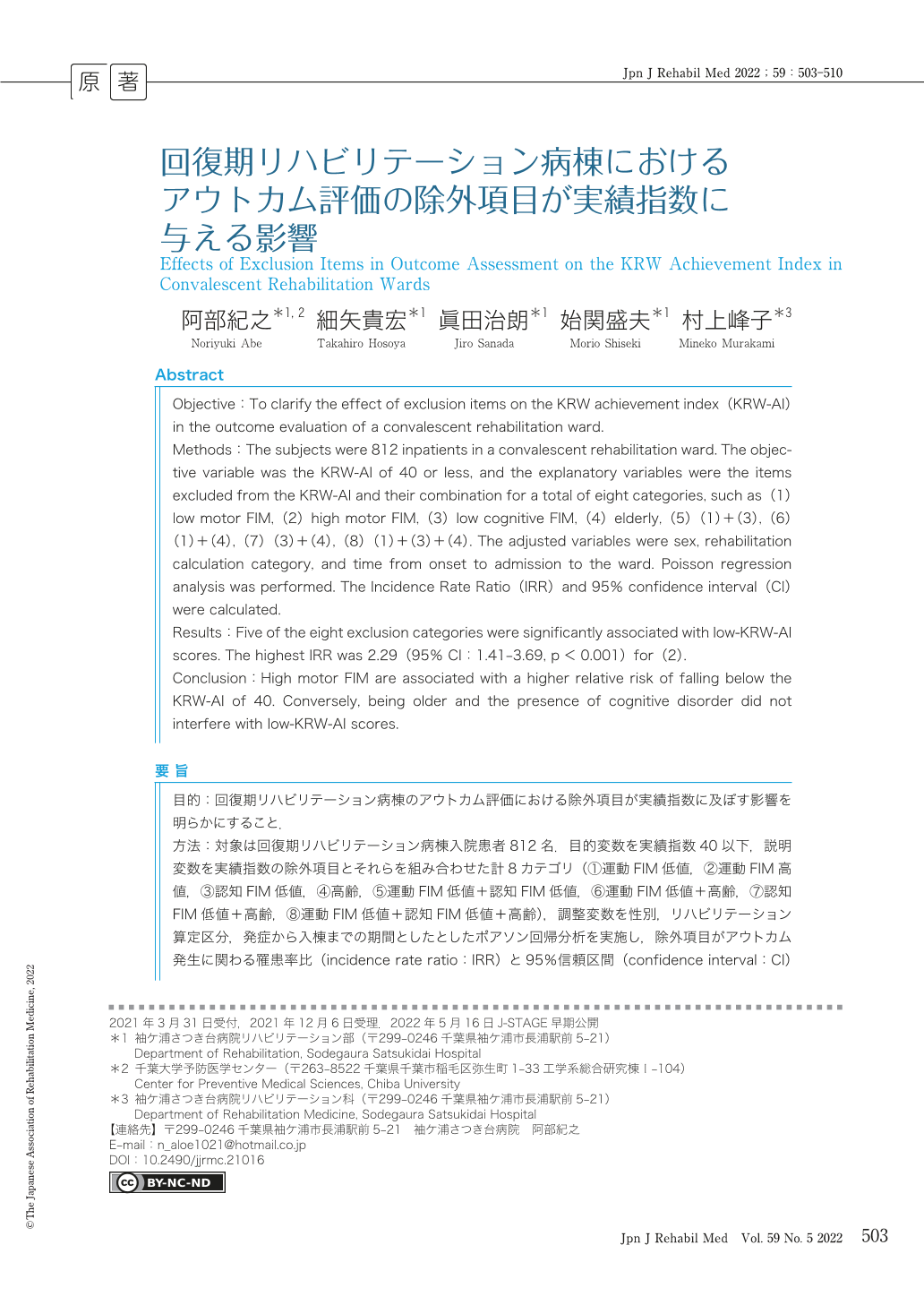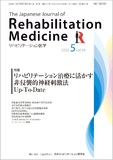Japanese
English
- 販売していません
- Abstract 文献概要
- 1ページ目 Look Inside
- 参考文献 Reference
要旨
目的:回復期リハビリテーション病棟のアウトカム評価における除外項目が実績指数に及ぼす影響を明らかにすること.
方法:対象は回復期リハビリテーション病棟入院患者812名.目的変数を実績指数40以下,説明変数を実績指数の除外項目とそれらを組み合わせた計8カテゴリ(①運動FIM低値,②運動FIM高値,③認知FIM低値,④高齢,⑤運動FIM低値+認知FIM低値,⑥運動FIM低値+高齢,⑦認知FIM低値+高齢,⑧運動FIM低値+認知FIM低値+高齢),調整変数を性別,リハビリテーション算定区分,発症から入棟までの期間としたとしたポアソン回帰分析を実施し,除外項目がアウトカム発生に関わる罹患率比(incidence rate ratio:IRR)と95%信頼区間(confidence interval:CI)を算出した(有意水準:5%).
結果:除外項目8カテゴリのうち,③認知FIM低値,④高齢,⑦認知FIM低値+高齢を除く5項目がアウトカム発生と有意な関連を認めた.アウトカム発生に対するIRRが最も高かったのは,②運動FIM高値で2.29(95%CI:1.41-3.69,p<0.001)であった.
結論:回復期リハビリテーション病棟の実績指数除外患者の判定において,運動FIM高値であることは実績指数40を下回る相対リスクが高くなることが明らかとなった.一方で,認知機能低下や高齢者であること自体は実績指数で表すリハビリテーション治療効果を阻害する因子にはなり得なかった.
Objective:To clarify the effect of exclusion items on the KRW achievement index (KRW-AI) in the outcome evaluation of a convalescent rehabilitation ward.
Methods:The subjects were 812 inpatients in a convalescent rehabilitation ward. The objective variable was the KRW-AI of 40 or less, and the explanatory variables were the items excluded from the KRW-AI and their combination for a total of eight categories, such as (1) low motor FIM, (2) high motor FIM, (3) low cognitive FIM, (4) elderly, (5) (1)+(3), (6) (1)+(4), (7) (3)+(4), (8) (1)+(3)+(4). The adjusted variables were sex, rehabilitation calculation category, and time from onset to admission to the ward. Poisson regression analysis was performed. The Incidence Rate Ratio (IRR) and 95% confidence interval (CI) were calculated.
Results:Five of the eight exclusion categories were significantly associated with low-KRW-AI scores. The highest IRR was 2.29 (95% CI:1.41-3.69, p<0.001) for (2).
Conclusion:High motor FIM are associated with a higher relative risk of falling below the KRW-AI of 40. Conversely, being older and the presence of cognitive disorder did not interfere with low-KRW-AI scores.

Copyright © 2022, The Japanese Association of Rehabilitation Medicine. All rights reserved.


